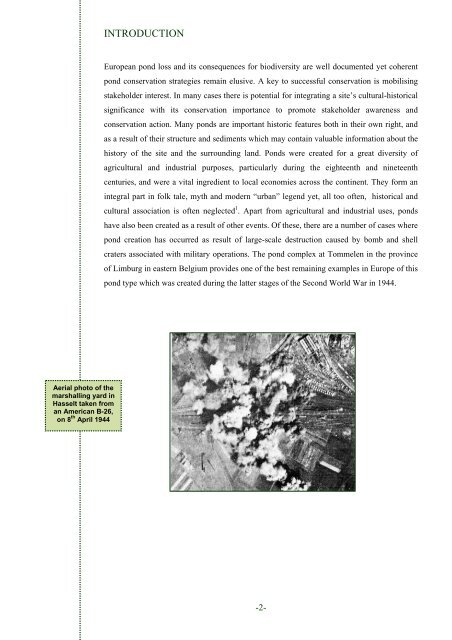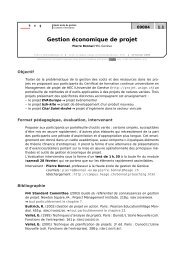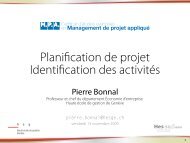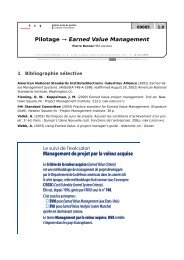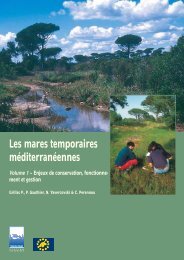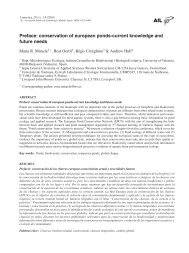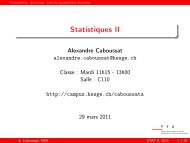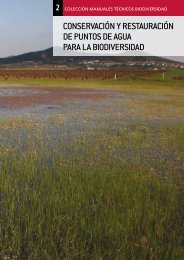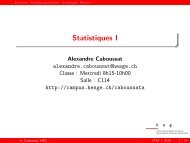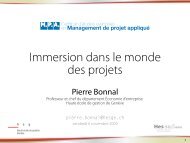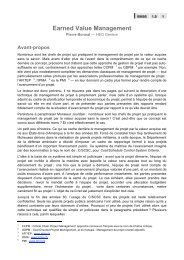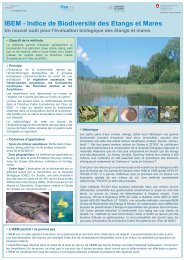see pdf document; 2 Mo
see pdf document; 2 Mo
see pdf document; 2 Mo
You also want an ePaper? Increase the reach of your titles
YUMPU automatically turns print PDFs into web optimized ePapers that Google loves.
Aerial photo of the<br />
marshalling yard in<br />
Hasselt taken from<br />
an American B-26,<br />
on 8 th April 1944<br />
INTRODUCTION<br />
European pond loss and its consequences for biodiversity are well <strong>document</strong>ed yet coherent<br />
pond conservation strategies remain elusive. A key to successful conservation is mobilising<br />
stakeholder interest. In many cases there is potential for integrating a site’s cultural-historical<br />
significance with its conservation importance to promote stakeholder awareness and<br />
conservation action. Many ponds are important historic features both in their own right, and<br />
as a result of their structure and sediments which may contain valuable information about the<br />
history of the site and the surrounding land. Ponds were created for a great diversity of<br />
agricultural and industrial purposes, particularly during the eighteenth and nineteenth<br />
centuries, and were a vital ingredient to local economies across the continent. They form an<br />
integral part in folk tale, myth and modern “urban” legend yet, all too often, historical and<br />
cultural association is often neglected 1 . Apart from agricultural and industrial uses, ponds<br />
have also been created as a result of other events. Of these, there are a number of cases where<br />
pond creation has occurred as result of large-scale destruction caused by bomb and shell<br />
craters associated with military operations. The pond complex at Tommelen in the province<br />
of Limburg in eastern Belgium provides one of the best remaining examples in Europe of this<br />
pond type which was created during the latter stages of the Second World War in 1944.<br />
-2-


